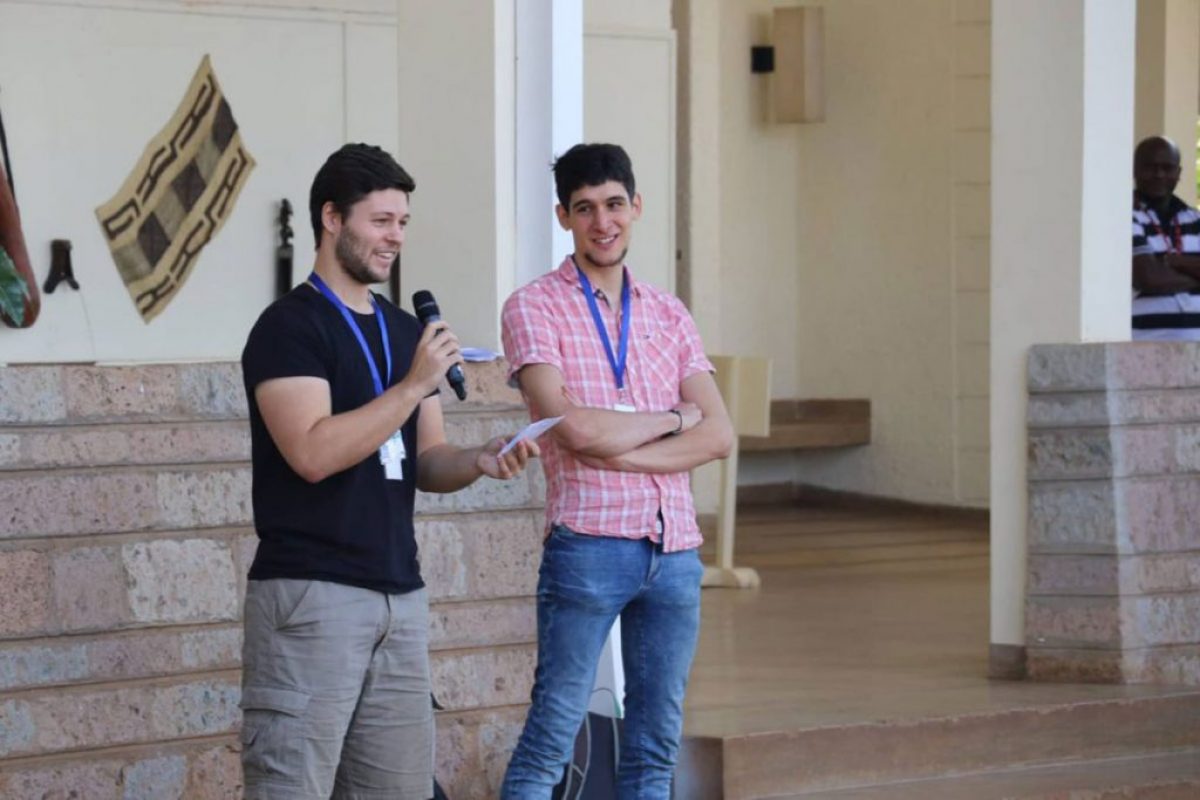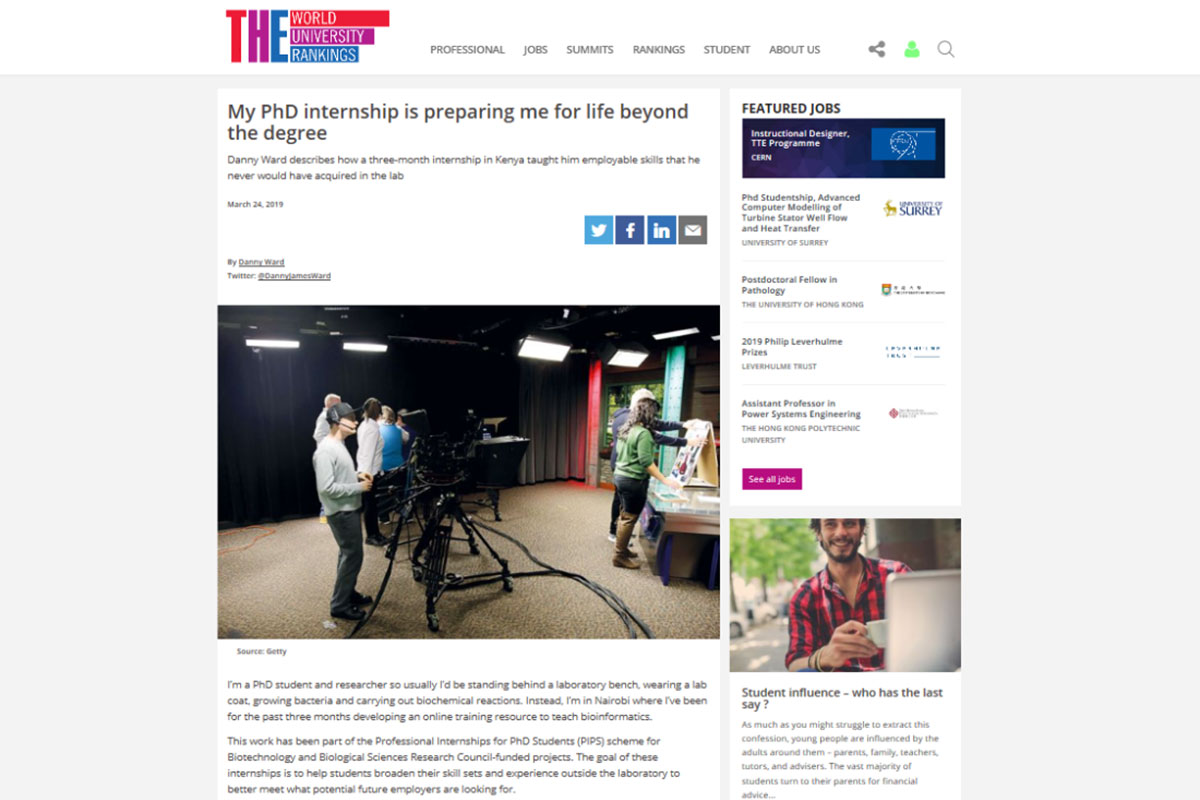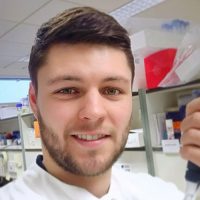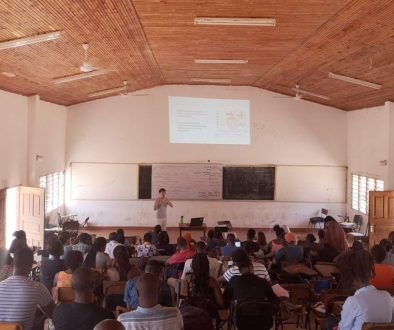An African Adventure: Learning Transferable Skills and Experiencing a Different Culture
As part of my UKRI BBSRC funded PhD, I have the chance to do a 3 month internship. This is a necessary component of the degree and takes place at some point during the 4 years of the doctorate. This internship is known as the Professional Internship for PhD students scheme, or PIPS for short. The concept is to take PhD students out of the lab for 3 months, away from their usual research and day-to-day activities and to throw them in to a new role!
This gives us PhD students the chance to develop a different skill set, to demonstrate our ability to apply our talents in a different area and to gain further and broader experience that potential future employers are looking for. It’s also a great way to ‘test out’ future career options.
The experience took me out of my routine and work at the John Innes Centre in Norwich, UK to doing something completely different in science media production and science communication in Africa.
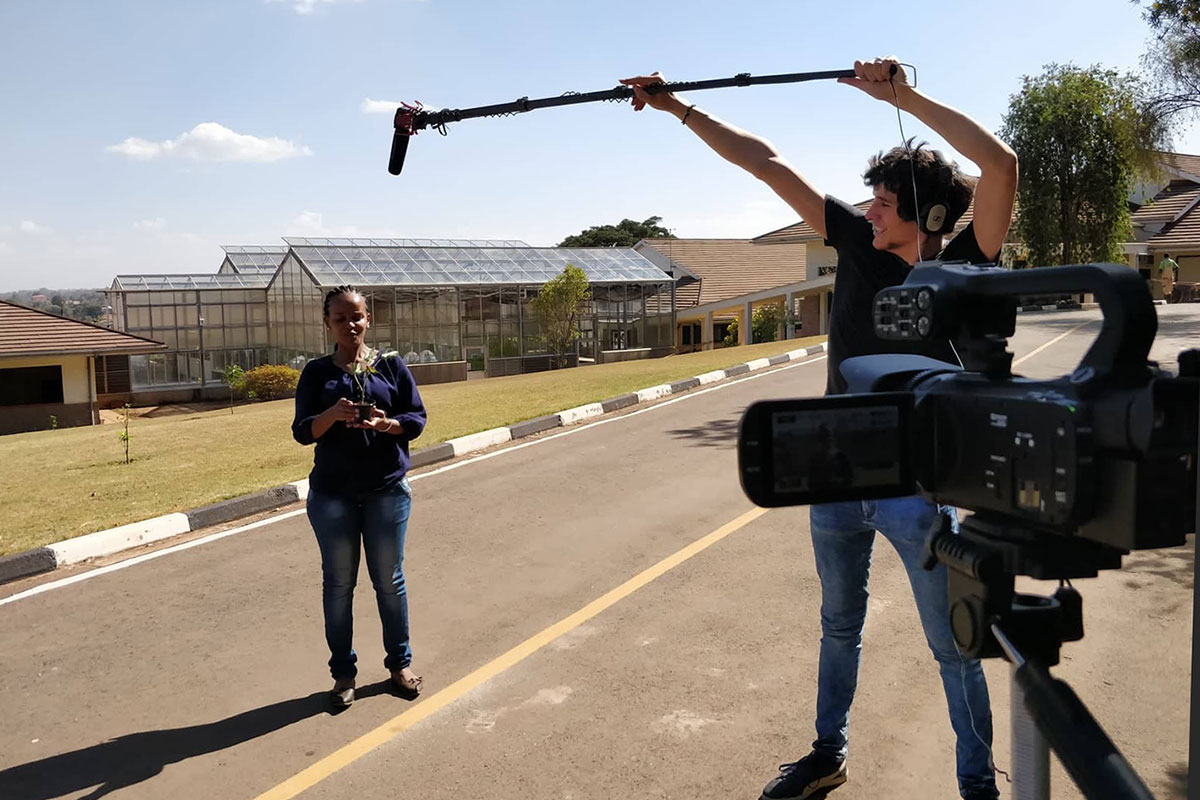
For the main portion of my internship, I was based in Nairobi, Kenya at BecA-ILRI. It was here that I was creating an online bioinformatic and soft skill training video series production pipeline. I would be starting the series and putting in place a formal process which could be followed by those at the institute to continue production of videos, helping to increase the organisations science communication capacity.
In terms of technical skills, I have learned about professional camera and studio operation, video editing, graphic animation, sound editing, videography and bioinformatics. With transferable skills, I have been able to build upon project management, communication, leadership, creativity and problem-solving skills.
I’d say the most valuable skill of all for me, however, was improving my science communication. I learned how to best break down complex topics and convey them to a non-expert audience. This has a wealth of applications, not only in academia, and will give me the confidence to present challenging topics to a variety of audiences in future.
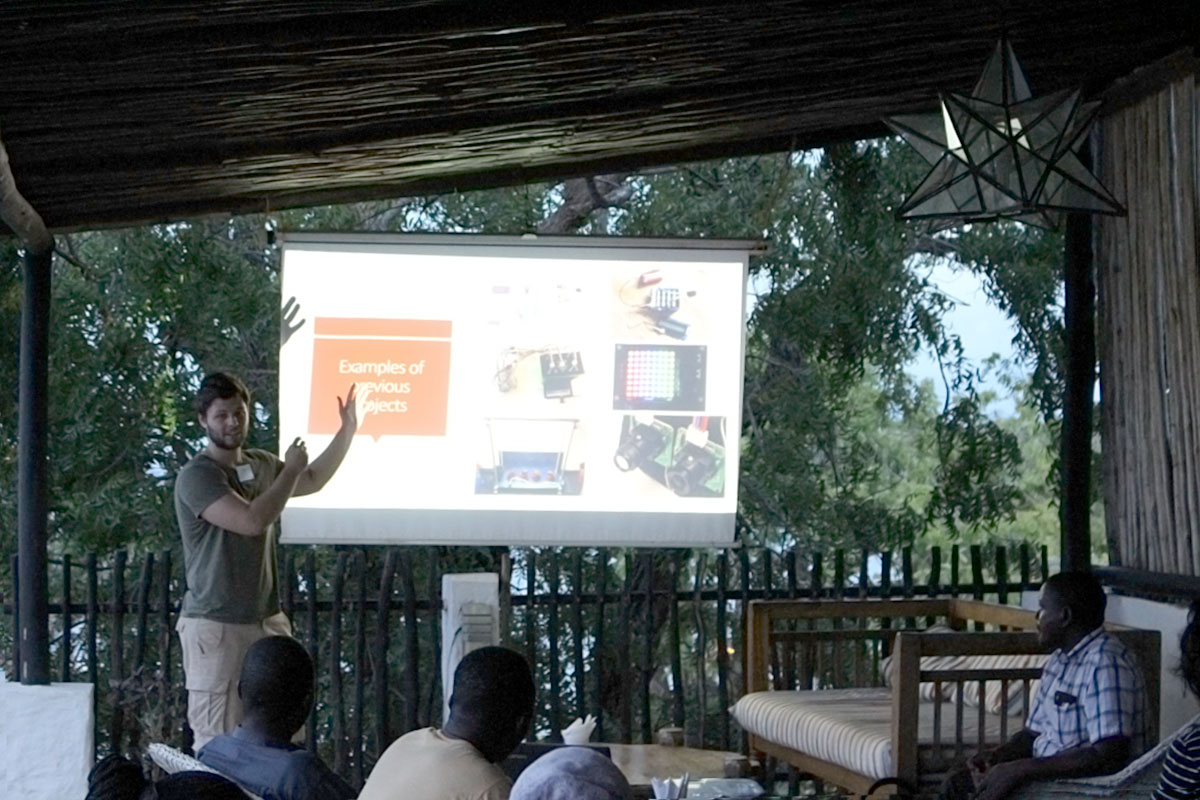
Following this, towards the end of my internship, I helped organised and ran “AfriPlantSci19” in Kilifi, Kenya at Pwani University. This was a plant science training course for early-career African researchers that featured a blend of guest lectures, interactive workshops, networking events and laboratory practical sessions.
I feel strongly that both participants as well as us facilitators and organisers got a lot out of the course; we all learnt a lot. It was fantastic to meet, network and form potential future collaborations with participants, all of whom were so talented, enthusiastic and passionate about science. I am sure we will all stay in contact and many of us may be working together in the near future, which I think speaks volumes about the success of this summer school.
The diverse range of skills developed, knowledge of research learned and experience in the laboratory gained will help these participants in their onward careers and I am confident that we will see many success stories in the world of plant and agricultural research from individuals who took part in the course.
I managed to learn a lot in the process too, not just about the scientific concepts discussed throughout the course but in terms of event organisation, management and leadership. These skills lend themselves well not only for my PhD, but for my onwards career too.
Kenya was an incredible country with friendly people, stunning scenery and impressive wildlife leading to an unforgettable experience that allowed me to better understand the nature of international research and science institutes.
